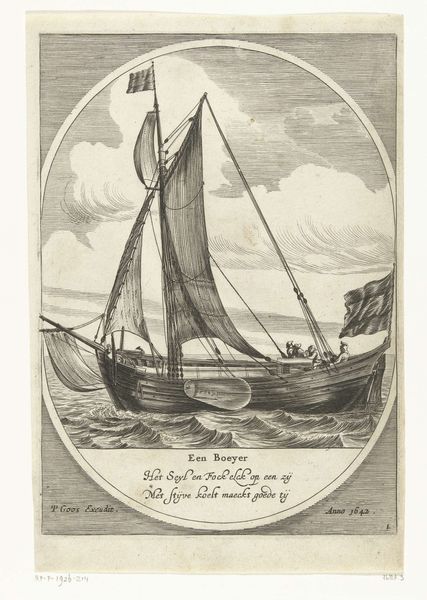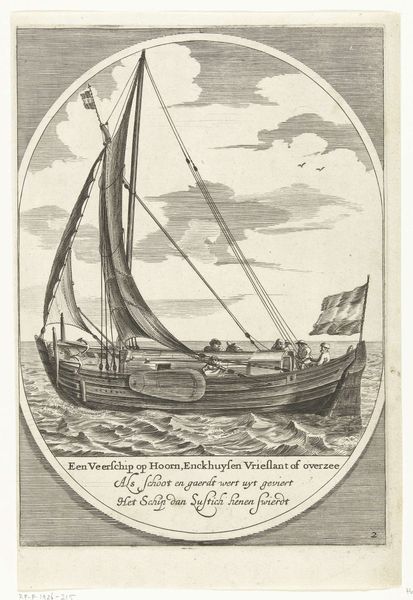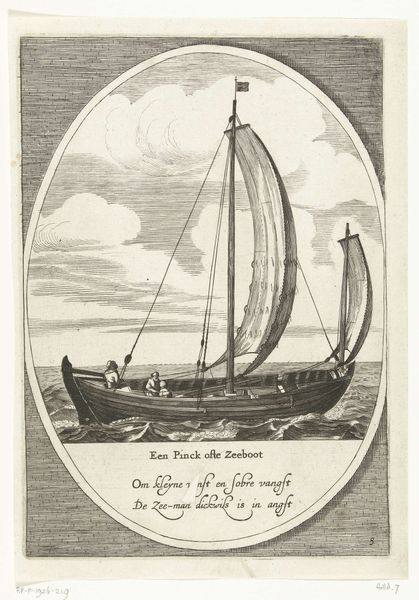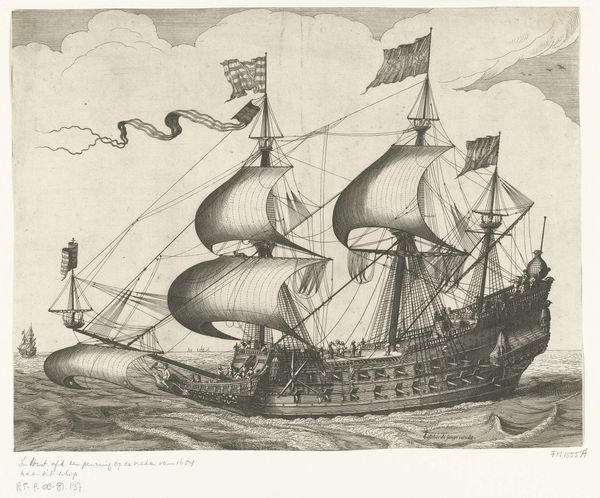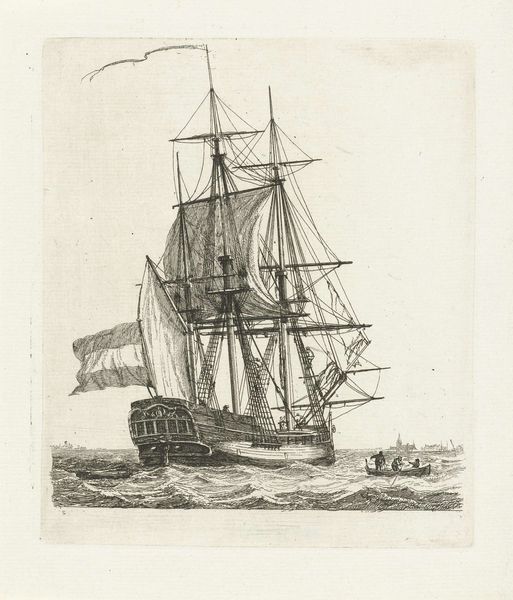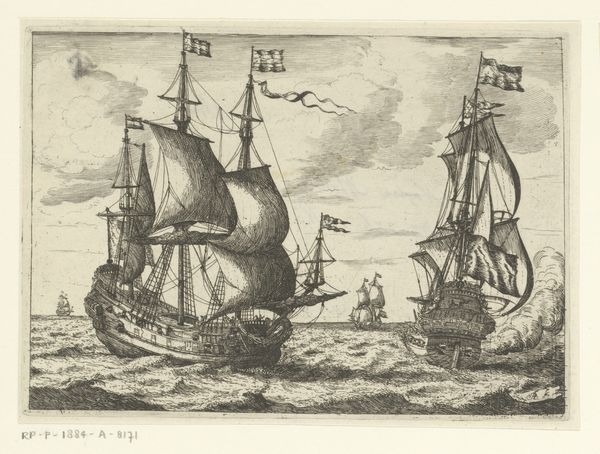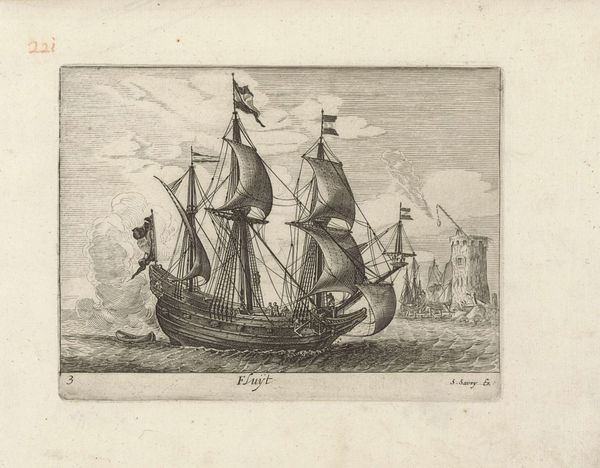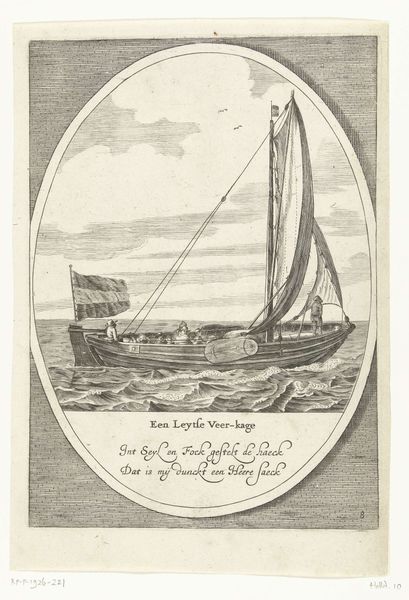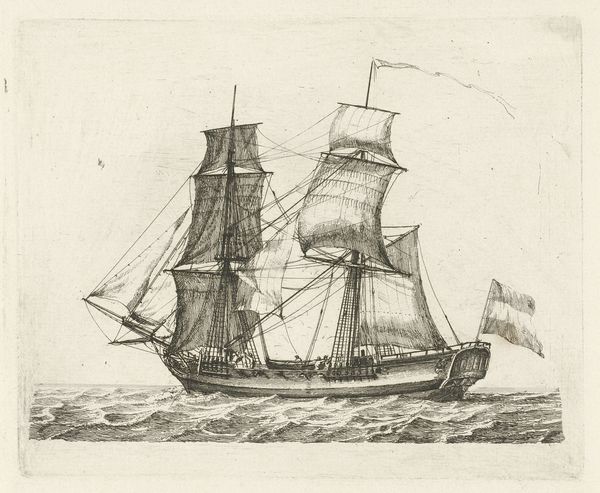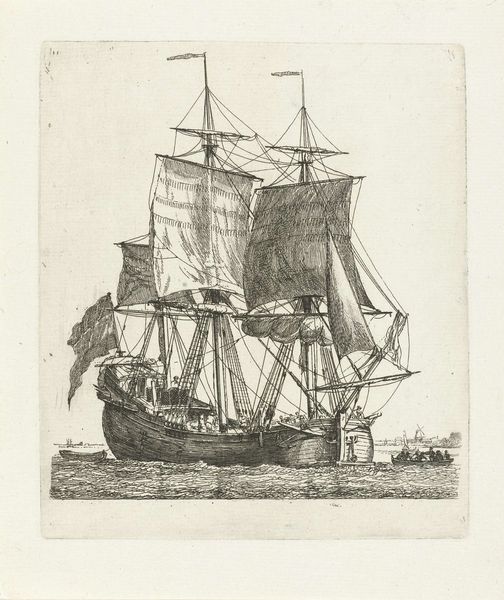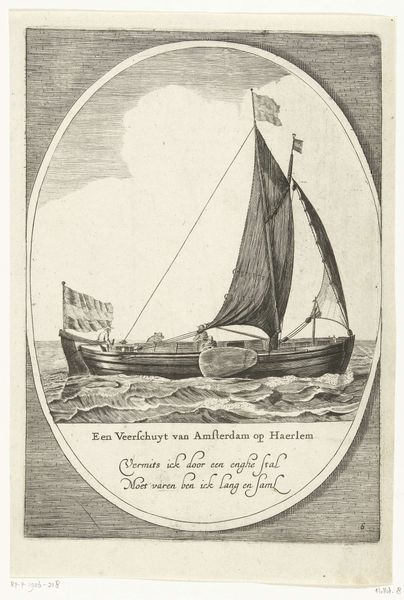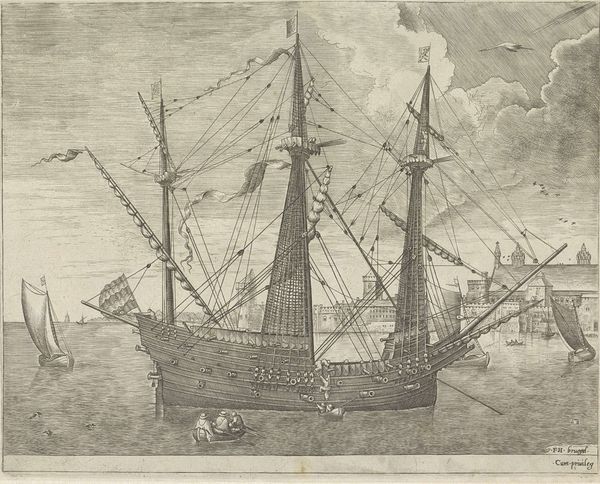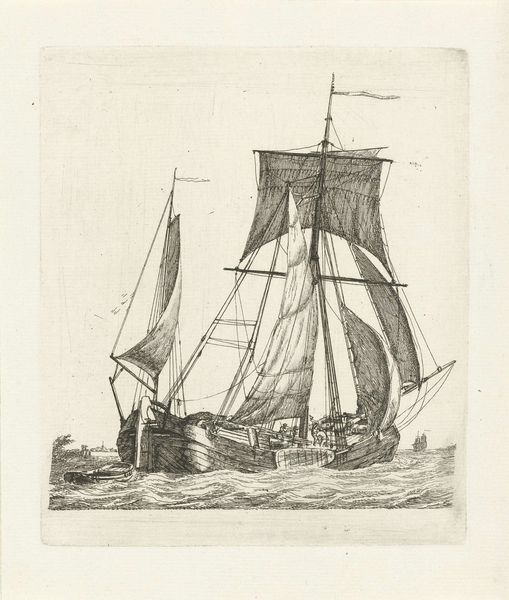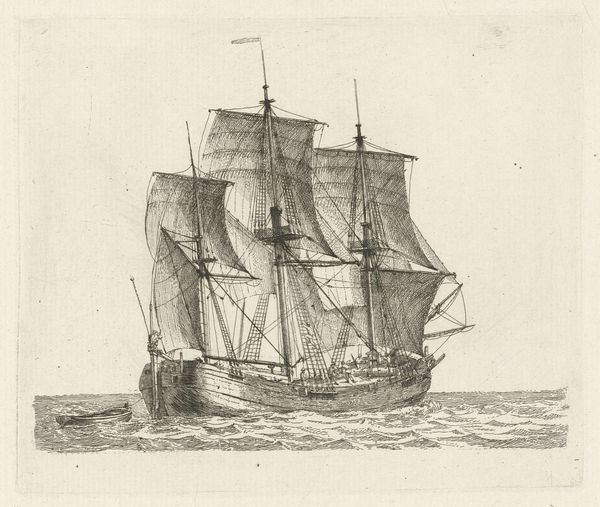
print, etching, engraving
#
dutch-golden-age
# print
#
etching
#
old engraving style
#
landscape
#
form
#
pen-ink sketch
#
line
#
history-painting
#
engraving
#
realism
Dimensions: height 230 mm, width 165 mm
Copyright: Rijks Museum: Open Domain
Curator: Here we have “Een fluitschip, 1642”, or “A Fluyt Ship, 1642,” an etching by Dirk Eversen Lons, created during the Dutch Golden Age. Editor: Immediately, it feels… contained, somehow. The oval frame emphasizes the ship's isolation on the water, making its journey seem solitary, almost poignant. The ship is sailing, but there's also a feeling of suspension. Curator: That confinement is interesting, given the subject matter. Fluyts like this one were vital to Dutch trade. They were mass-produced—for the time, anyway—and incredibly efficient. This ship represents connection, commerce, expansion. It moved goods but also ideas around the world. Editor: You say efficient, but look at how delicately it's rendered. The labor behind the art feels quite different from the labor involved in sailing this type of boat across an ocean for material gain. It is almost idealized to become a drawing that is meant to capture an instant. Curator: I think you’re on to something. There is such loving detail. You can see every line of the rigging, and the artist gave the sails real volume with just subtle shading. Editor: What’s striking, in considering its materiality, is the starkness of black ink on white paper – almost industrial, like a blueprint, echoing the ship's own functional design. But then those swells of the sea pull us back into its reality. They remind me of a simple repetitive action, marking time through labor and distance. Curator: It is that dance between form and content again: such graceful rendering of this workhorse of a ship makes you forget it isn't a pleasure yacht, gliding carefree on the water. The inscription also plays on this idea, "The flag and sails flat out / Make a short journey for the Fluyt." This ship might travel shorter distances due to its practical design. Editor: So, it captures not just the vessel but also the ambition and scale of Dutch maritime commerce during that era – all reduced and preserved here. Curator: Ultimately, it is beautiful proof that commerce, at times, becomes an object of beauty as it sails into our imagination, thanks to art.
Comments
No comments
Be the first to comment and join the conversation on the ultimate creative platform.
